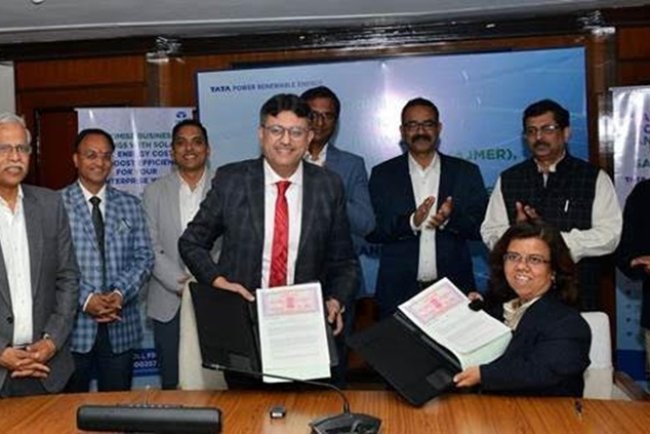$635M Grants Expand Zero-Emission Vehicle Infrastructure
$635M grants will expand EV charging, hydrogen fueling stations, and support clean transportation projects nationwide.

The U.S. Department of Transportation's Federal Highway Administration (FHWA) is marking a significant step forward in the nation's transition to clean transportation with an award of $635 million in grants for the expansion of zero-emission electric vehicle (EV) charging and hydrogen refueling infrastructure. Through the Bipartisan Infrastructure Law, this funding will support 49 projects in 27 states, four federally recognized Tribes, and the District of Columbia. The goal of these investments is not only to improve the infrastructure for zero-emission vehicles but also to drive innovation, create jobs, and ensure equitable access to clean transportation options across various communities.
The initiative is notable for the large-scale expansion of infrastructure that will introduce over 11,500 new EV charging ports and alternative fueling stations. These stations will be strategically placed in key transportation corridors and underserved communities, ensuring that EV drivers across the country have access to reliable charging and refueling options. This expansion is essential in supporting the growing adoption of electric vehicles and hydrogen-powered transportation, which are crucial components in the fight against climate change.
Among the most notable projects funded by the grants are those that focus on hydrogen fueling stations. One such example is the construction of a hydrogen fueling station with an investment of $24.8 million at the Port Authority of Houston in Bayport, Texas. This will specifically support the increasing demand for hydrogen fuel for heavy-duty trucks, which are essential for the decarbonization of the freight and logistics sector. The station will be public-facing and built to support high-throughput operations, thereby forming an integral part of the National Zero-Emission Freight Corridor Strategy. The latter aims to help accelerate the transition of medium- and heavy-duty vehicles toward zero-emission status, as those categories are a source of much of the transportation-related emissions.
The California Energy Commission was also recently granted $55.9 million for 21 public EV charging stations and one hydrogen refueling station designed specifically for medium- and heavy-duty trucks. Such projects are best suited to address the state's aggressive decarbonization goals to decrease greenhouse gas emissions and make California's air healthier. By supporting these efforts, the funding is helping build out a robust infrastructure that can support the transition to zero-emission freight and passenger transportation, which is quintessential for meeting national and state-level climate targets.
Jeff Marootian, Principal Deputy Assistant Secretary for the Office of Energy Efficiency and Renewable Energy, recently said that such funding implies a broader significance. Marootian explained that this investment is one of the finest examples of how governmental investments work together to bring a cleaner, more sustainable transportation system faster into being. Funding will be provided in addition to what the Department of Energy has been doing for quite some time on developing the 21st-century energy workforce, and to make sure the electric grid can handle the country-wide deployment of zero-emission fueling infrastructure.
Such strategic funding does more than merely support an expansion in the charging and refueling infrastructure. In promoting projects under the National Zero-Emission Freight Corridor Strategy, grants help advance the United States's role in being at the forefront of clean transportation around the globe. Of late, the focus has been on developing more hydrogen refueling stations. This is especially critical in diversifying fueling options and would fill the gaps for long-haul freight and, of course, passenger vehicles. A nationwide network of zero-emission fueling stations will be instrumental in enabling broad adoption of electric and hydrogen-powered light-duty vehicles, reduce reliance on fossil fuels, and eventually begin to lower greenhouse gas emissions across the entire transportation sector.
Besides the aforementioned environmental benefits of the investments, they are said to create gigantic economic opportunities through the projects funded for clean energy ventures. These activities will include anything from the provision of new constructions to the employment and maintenance involved in charging as well as the refueling operations. In addition, a focus on equity ensures that the opportunities are opened up to various communities, with a focus on those that are underserved in clean transportation infrastructure. The zero-emission options will be open to all by ensuring that a more equitable and sustainable transportation future is created for all Americans.
In summary, the announced $635 million in grants under the FHWA marks a fundamental step toward shaping a clean and sustainable transportation system for the country. The infrastructure investments in charging electric vehicles as well as fueling hydrogen shall support the widespread adoption of zero-emission vehicles while creating job opportunities, catalyzing innovations, and opening equal access to clean transportation. With the U.S. continuing to push its efforts forward in the fight against climate change, such programs will be necessary in shaping a greener and more sustainable future for generations to come.
What's Your Reaction?

















